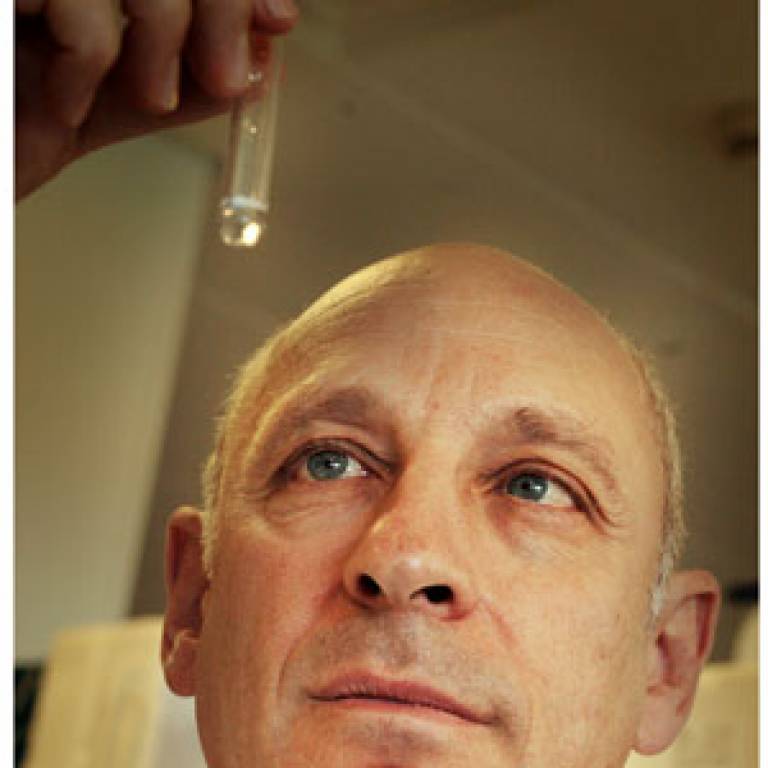UCL scientist awarded research grants of £4.6m
16 June 2010
Links:
 ucl.ac.uk/iris/browse/profile?upi=MBPEP52" target="_self">Professor Mark Pepys
ucl.ac.uk/iris/browse/profile?upi=MBPEP52" target="_self">Professor Mark Pepys
Professor Mark Pepys FRS has recently been awarded two grants by the Medical Research Council (MRC) totalling £4.6 million to support his translational research and development programme.
The MRC's new Developmental Clinical Studies Scheme was introduced last year to support the development and initial clinical testing of new drugs. One of the first three awards made under the scheme has gone to Professor Pepys (UCL Centre for Amyloidosis and Acute Phase Proteins), providing £3.84 million to fund the development of the compound he invented to inhibit C-reactive protein for the treatment of cardiovascular and inflammatory diseases. The other major interest of Professor Pepys and his team is amyloidosis, a rare and usually fatal illness.
Pepys has most recently invented a new approach to the treatment of amyloid, comprising a combination of a small molecule drug he had previously developed and a monoclonal antibody. This invention was licensed to GlaxoSmithKline last year and is being actively developed for clinical studies. The MRC is supporting UCL's work on this treatment with a new research grant of £802,000 which continues the work of the MRC programme grant in this field that Professor Pepys has held continuously since 1979. These awards confirm UCL's position at the forefront of translational biomedical research.
Professor Pepys said: "These awards will have an enormous impact on the progress of our new approaches to treatment of serious and fatal diseases. The MRC has supported my research without interruption since 1969 and since 1979 our work has led to improvements in diagnosis and management, better outcomes for patients, and lately to the invention of new treatments. These can only come into general use with the resources and expertise of the pharmaceutical industry. The treatment for amyloidosis is now being developed for clinical testing in collaboration with GlaxoSmithKline but MRC funding of our ongoing contribution is essential."
"The C-reactive protein inhibitor drug programme is less advanced but the MRC award will support clinical testing and encourage pharma to take it forward. These translational research programmes are potentially transformational for medical practice. If successful they will repay the tax payer who has funded them and reward UCL for nurturing them."
Image above: Professor Mark Pepys
UCL context
The UCL Centre for Amyloidosis and Acute Phase Proteins conducts world leading research in all aspects of the pentraxin family of plasma proteins, and in amyloidosis. Studies range from structural biology, through molecular, genetic, biochemical, physiological and pathological studies, to clinical diagnostics, patient management and new drug discovery. There are extensive collaborative links with scientists, clinicians and industry in many of these areas. The goal is to elucidate fundamental normal and pathobiological mechanisms in order to improve diagnosis, management and outcome of disease. Apart from all aspects of amyloidosis, there are particular interests in cardiovascular and inflammatory diseases, as well as the major common diseases associated with local amyloid deposits: Alzheimer's disease and type 2 diabetes mellitus. The NHS National Amyloidosis Centre is part of the Centre for Amyloidosis and Acute Phase Proteins and is based at the UCL Royal Free Campus.
Related news
Microbubble pioneers win £25,000 prize
UCL staff elected to Academy of Medical Sciences
 Close
Close

